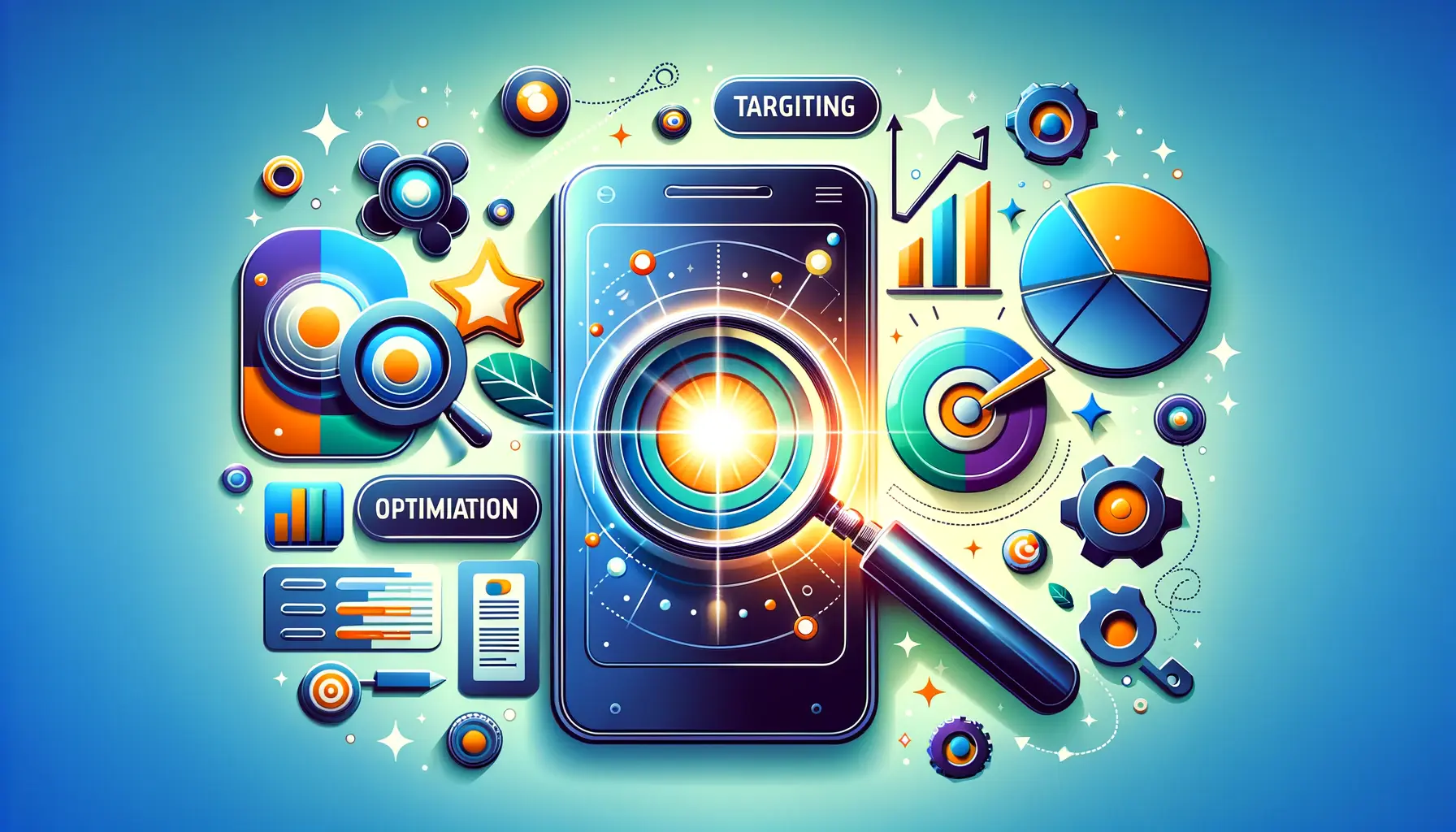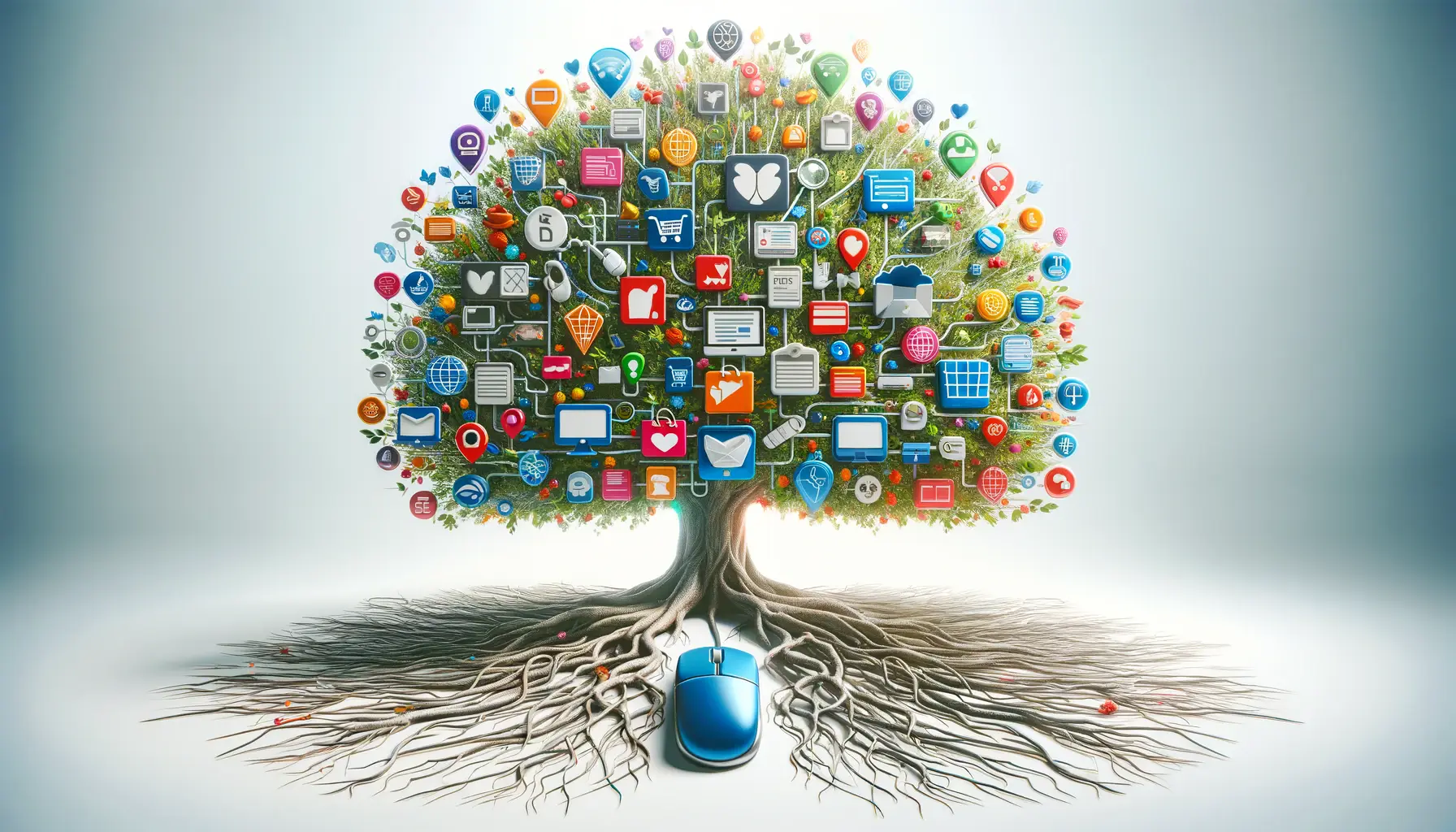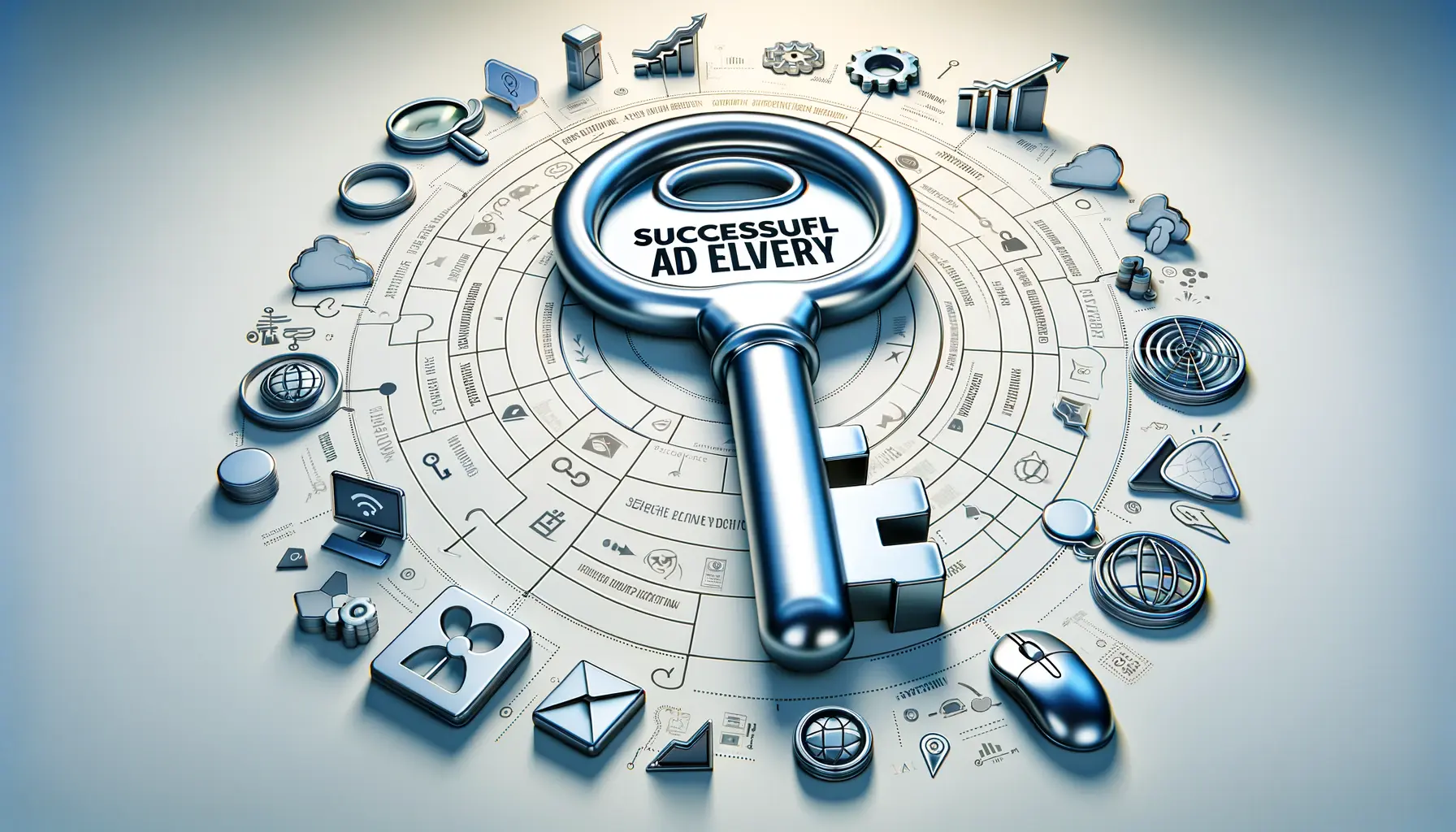The landscape of professional development and personal growth is ever-evolving, with continuous learning emerging as a key component in staying relevant and competitive.
In today’s fast-paced world, the pursuit of knowledge has transcended traditional boundaries, making courses an invaluable resource for individuals aiming to enhance their skills and expertise.
This shift towards a more dynamic and flexible approach to learning underscores the importance of courses in facilitating continuous improvement and adaptation.
Facebook Advantage+, a platform renowned for its vast array of digital marketing tools, has significantly contributed to this educational revolution.
By offering courses tailored to various aspects of digital marketing, Facebook Advantage+ has become a cornerstone for marketers, entrepreneurs, and businesses striving to excel in the digital realm.
The integration of courses into Facebook Advantage+ not only democratizes access to high-quality education but also aligns with the broader trend of leveraging technology to foster lifelong learning.
- The Role of Courses in Modern Learning
- Choosing the Right Courses for You
- Maximizing Learning Outcomes
- Overcoming Challenges in Online Learning
- Leveraging Social Media for Learning
- Integrating Learning into Daily Life
- Future Trends in Continuous Learning
- Embracing Continuous Learning through Courses
- FAQs on Continuous Learning with Courses
The Role of Courses in Modern Learning
Courses, especially those offered through platforms like Facebook Advantage+, play a pivotal role in modern learning ecosystems.
They provide a structured yet flexible pathway for individuals to acquire new skills, deepen their understanding of specific subjects, and stay abreast of industry trends and best practices.
The accessibility of these courses, combined with their practical, real-world applications, makes them an essential tool for anyone looking to enhance their professional portfolio or personal knowledge base.
Moreover, the variety of courses available caters to a wide range of interests and professional needs.
From digital marketing and social media strategies to data analysis and creative design, learners can choose courses that best fit their career goals and learning preferences.
This personalized approach to education not only enhances the learning experience but also ensures that the knowledge gained is relevant and applicable.
Benefits of Continuous Learning
Engaging in continuous learning through courses offers numerous benefits.
It fosters a growth mindset, encouraging individuals to embrace challenges and view failures as opportunities for growth.
This mindset is crucial in today’s rapidly changing world, where adaptability and resilience are key to success.
Additionally, continuous learning enhances employability, equipping learners with the skills and knowledge necessary to excel in their current roles or pivot to new opportunities.
Another significant advantage is the potential for personal development.
Learning new skills or deepening existing ones can boost confidence, ignite passion, and open doors to new hobbies or career paths.
The sense of achievement that comes from completing a course and acquiring new knowledge is immensely satisfying and can be a powerful motivator for further learning.
Continuous learning through courses is not just about professional development; it’s a journey of personal growth and lifelong curiosity.
Choosing the Right Courses for You
Selecting the right courses to enroll in is a critical step in your continuous learning journey.
With the vast array of options available, particularly on platforms like Facebook Advantage+, making an informed choice requires careful consideration of several key factors.
This decision-making process ensures that the courses you choose align with your personal and professional objectives, maximizing the benefits of your learning experience.
Here are some guidelines to help you select courses that best suit your needs:
Identify Your Learning Objectives
- Clarify your goals: Are you looking to advance in your current career, switch professions, or pursue a hobby?
- Determine the skills you need: Based on your goals, identify the specific skills or knowledge areas you need to focus on.
Evaluate Course Content and Structure
- Review the syllabus: Ensure the course covers topics relevant to your learning objectives.
- Consider the learning format: Decide whether you prefer self-paced online courses, live sessions, or a blend of both.
Assess the Instructor’s Expertise
- Research the instructor’s background: Look for instructors with practical experience and a strong teaching record in the subject matter.
- Check reviews and ratings: Learner feedback can provide valuable insights into the instructor’s teaching style and the course’s effectiveness.
Consider the Time Commitment and Flexibility
- Estimate the time required: Make sure you can commit the necessary time to complete the course without compromising other responsibilities.
- Look for flexible scheduling options: Courses that offer flexibility can help you balance learning with work and personal life.
By taking the time to carefully select courses, you ensure that your learning journey is both effective and enjoyable.
The right courses can provide you with the knowledge and skills needed to achieve your goals, while also fitting seamlessly into your lifestyle.
Exploring a variety of courses and conducting thorough research before making a decision can lead to a more fulfilling and impactful learning experience.
Maximizing Learning Outcomes
To truly benefit from the courses you take, it’s essential to approach your learning experience with intention and strategy.
Maximizing learning outcomes goes beyond simply completing a course; it involves engaging deeply with the content, applying what you’ve learned, and reflecting on your growth.
Here are some strategies to help you get the most out of your courses:
Active Engagement
- Participate in discussions: Engage with fellow learners and instructors to deepen your understanding and gain new perspectives.
- Complete all assignments: These are designed to reinforce your learning and help you apply concepts in practical scenarios.
Practical Application
- Implement what you learn: Apply new skills and knowledge to real-world situations, whether in your personal projects or professional work.
- Seek feedback: Share your work with peers or mentors to gain insights and further refine your skills.
Continuous Reflection
- Set aside time for reflection: Regularly assess your progress and identify areas for improvement.
- Adjust your learning plan: Based on your reflections, make necessary adjustments to your learning goals and strategies.
By actively engaging with course material, applying what you learn, and reflecting on your progress, you can enhance your learning experience and achieve meaningful outcomes.
This proactive approach ensures that you not only acquire new knowledge and skills but also integrate them into your personal and professional life effectively.
True learning is a cyclical process of acquiring knowledge, applying it, and reflecting on the experience to foster continuous growth.
Overcoming Challenges in Online Learning
While online courses offer flexibility and access to a wealth of knowledge, learners often face unique challenges in this environment.
Recognizing and addressing these challenges early on can significantly enhance your learning experience and ensure you remain engaged and motivated throughout your course.
Here are some common obstacles and strategies to overcome them:
Time Management
- Establish a routine: Set specific times for studying to build a consistent learning habit.
- Use planning tools: Leverage calendars or task management apps to schedule study sessions and track deadlines.
Maintaining Motivation
- Set clear goals: Remind yourself of why you’re taking the course and what you hope to achieve.
- Celebrate milestones: Acknowledge your progress and reward yourself for completing sections or assignments.
Navigating Technology
- Familiarize yourself with the platform: Spend time exploring the course platform to understand its features and how to access resources.
- Seek support: Don’t hesitate to contact technical support or use online forums to resolve any issues you encounter.
Engaging with the Course Community
- Participate actively: Join discussion forums, attend live sessions, and connect with peers to enhance your learning experience.
- Form study groups: Collaborating with others can provide motivation, support, and different perspectives on the course material.
By proactively addressing these challenges, you can create a more productive and enjoyable online learning experience.
Effective time management, maintaining motivation, navigating technology, and engaging with the course community are key to overcoming the obstacles of online learning.
Remember, the challenges of online learning are surmountable with the right strategies and a proactive approach.
Leveraging Social Media for Learning
In the digital age, social media platforms have transcended their original purpose of social networking to become powerful tools for education and professional development.
Platforms like Facebook, with its Advantage+ courses, offer unique opportunities for learners to access a wide range of educational content, connect with experts, and engage in community learning.
Here’s how you can leverage social media to enhance your learning experience:
Access to Diverse Learning Resources
- Follow educational pages and groups: Many organizations and professionals share valuable insights, tutorials, and courses on their social media profiles.
- Subscribe to industry leaders: Stay updated with the latest trends and practices by following thought leaders in your field of interest.
Community Engagement and Support
- Join learning communities: Participate in groups or forums related to your courses to discuss concepts, ask questions, and share resources.
- Network with peers: Connect with fellow learners to exchange ideas, collaborate on projects, or provide mutual support.
Real-time Feedback and Interaction
- Engage with content creators: Comment on posts, ask questions, and participate in live Q&A sessions to gain deeper insights.
- Share your learning journey: Posting about your progress can elicit feedback, advice, and encouragement from your network.
By actively engaging with educational content on social media, you can significantly enrich your learning experience.
Social media platforms not only provide access to a wealth of knowledge but also foster a sense of community and collaboration, making learning more interactive and enjoyable.
Social media is a gateway to a global classroom, offering endless opportunities for learning, networking, and growth.
Integrating Learning into Daily Life
Continuous learning should not be confined to formal courses or designated study times; it can be integrated into your daily life, turning everyday experiences into opportunities for growth and development.
By adopting a lifestyle of learning, you can continuously evolve your skills and knowledge in a natural and enjoyable way.
Here are strategies to weave learning into the fabric of your daily routine:
Incorporate Learning into Daily Activities
- Listen to educational podcasts or audiobooks during commutes, workouts, or chores.
- Read articles or watch videos related to your interests or professional field during breaks.
Set Microlearning Goals
- Focus on learning something new each day, even if it’s a small fact, skill, or concept.
- Use apps or online platforms that offer bite-sized lessons for quick and easy learning.
Practice Reflective Learning
- End your day by reflecting on what you learned and how you can apply it.
- Maintain a learning journal to jot down insights, questions, and ideas for future exploration.
Engage in Conversational Learning
- Discuss interesting topics or share knowledge with friends, family, and colleagues to deepen your understanding and gain new perspectives.
- Participate in community events or workshops to learn in a social setting.
Integrating learning into your daily life not only enhances your knowledge and skills but also keeps your curiosity and passion for learning alive.
By making learning a continuous and integral part of your life, you can enjoy the journey of personal and professional growth every day.
Every day is an opportunity to learn something new; the key is to remain open and curious, turning life into a continuous classroom.
Future Trends in Continuous Learning
The landscape of continuous learning is constantly evolving, shaped by technological advancements, changing workforce demands, and the growing importance of lifelong learning.
As we look to the future, several trends are emerging that promise to further transform how we engage with continuous learning.
Understanding these trends can help learners and educators alike prepare for and adapt to the future of education.
Personalized Learning Experiences
- Advancements in AI and machine learning are enabling more personalized and adaptive learning experiences, tailoring content to meet individual learner’s needs, preferences, and pace.
- This trend is likely to grow, offering more customized learning paths that enhance engagement and outcomes.
Microcredentials and Badging
- There is an increasing emphasis on microcredentials and digital badges as a way to validate and showcase skills and knowledge acquired through online courses and learning platforms.
- This approach allows learners to build a portfolio of credentials that are recognized by employers and professional communities.
Blended and Hybrid Learning Models
- The future will see a continued blend of online and in-person learning experiences, combining the best of both worlds to create more dynamic and interactive learning environments.
- Hybrid models offer flexibility and the benefits of face-to-face interaction, making learning more accessible and effective.
Lifelong Learning Platforms
- As the need for continuous skill development persists, we will see the rise of platforms dedicated to lifelong learning, offering courses, resources, and community support for learners of all ages.
- These platforms will play a crucial role in supporting ongoing education and professional development.
The future of continuous learning is bright, with innovations that promise to make education more accessible, engaging, and aligned with the needs of the modern learner.
By staying informed about these trends, individuals can better navigate their learning journeys, while organizations can support their employees in achieving continuous growth and adaptability.
Embracing the future of continuous learning means adapting to new technologies and models, ensuring that education remains a lifelong journey of growth and discovery.
Embracing Continuous Learning through Courses
The journey of continuous learning through courses, especially within the dynamic ecosystem of Facebook Advantage+, represents a transformative pathway for individuals seeking personal and professional growth.
As we’ve explored, courses offer a structured yet flexible means to not only acquire new skills but also to adapt to the rapidly changing demands of the digital age.
The evolution of learning platforms, coupled with the increasing accessibility of diverse educational content, underscores the shift towards a more inclusive and learner-centric approach.
The Power of Personalized Learning
One of the most significant trends shaping the future of continuous learning is the move towards personalized learning experiences.
This approach not only enhances learner engagement but also ensures that educational content is more relevant and impactful.
By leveraging advanced technologies to tailor learning paths, individuals can more effectively meet their unique goals and aspirations, making the pursuit of knowledge a more fulfilling and rewarding experience.
Building a Culture of Lifelong Learning
The importance of fostering a culture of lifelong learning cannot be overstated.
In an era where knowledge is a key driver of success, the ability to continuously learn and adapt is crucial.
Courses, particularly those offered through platforms like Facebook Advantage+, play a vital role in supporting this culture, providing learners with the tools and resources they need to thrive in an ever-evolving world.
- The integration of microcredentials and digital badging offers a tangible way to recognize and validate learning achievements, further motivating individuals to engage in continuous learning.
- Blended and hybrid learning models reflect the future of education, combining the convenience of online learning with the richness of in-person experiences.
- Lifelong learning platforms emerge as central hubs for education, offering endless opportunities for growth and development across all stages of life.
In conclusion, the journey of continuous learning through courses is more than just an educational trend; it’s a fundamental shift in how we approach personal and professional development.
With platforms like Facebook Advantage+ leading the way, individuals are empowered to take control of their learning journeys, exploring new horizons and unlocking their full potential.
As we look to the future, the role of courses in continuous learning will undoubtedly continue to evolve, offering new opportunities for learners to grow, adapt, and succeed in the digital age.
Enjoyed the article? Let its author handle your social media ads. Visit our service page to get started!
FAQs on Continuous Learning with Courses
Explore common questions about continuous learning and how courses can play a pivotal role in personal and professional development.
Continuous learning is the ongoing process of developing new skills and knowledge, crucial for adapting to change and fostering personal growth.
It keeps individuals competitive and relevant in their professional fields, enhancing career prospects and personal development.
Courses provide structured learning paths, offering up-to-date knowledge and practical skills in various domains.
Yes, by acquiring new skills and insights, individuals can increase their efficiency, creativity, and problem-solving capabilities at work.
Technology facilitates access to a wide range of courses and resources, making learning more flexible and accessible.
Identify your learning goals and seek courses that match your interests and professional needs, ensuring they offer practical, applicable knowledge.
Absolutely, it equips individuals with the latest skills and knowledge, making them more valuable to employers and opening up new career opportunities.
No, it benefits anyone looking to expand their knowledge and skills, whether for professional development, personal interest, or lifelong learning.












